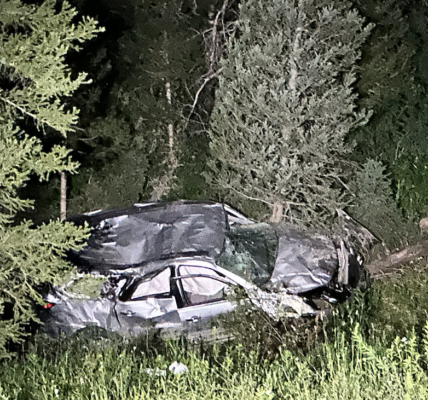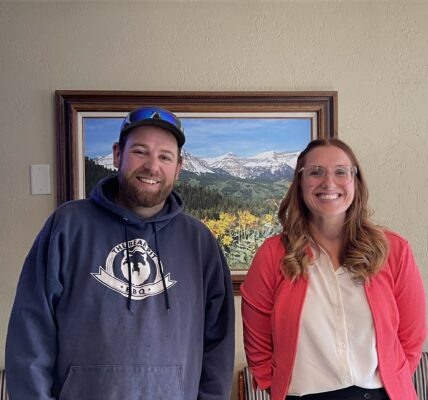By Victoria Eavis
Casper Star-Tribune
Via- Wyoming News Exchange
CASPER —A bill that would ensure visitation rights for the loved ones of people in hospitals and long term care facilities cleared the Wyoming House on Tuesday and is now moving onto the Senate.
Before the measure passed, however, revisions removed much of its original intent.
An amendment brought by Rep. Lloyd Larsen, R-Lander, would give nursing homes, long-term care centers and assisted living facilities the power to decide whether visitors are allowed. The bill had sought to bar these entities from prohibiting visitors.
Another successful amendment would require facilities to follow Centers for Disease Control and Prevention guidelines as well as guidelines from the Centers for Medicare and Medicaid Services.
But even with those changes, the bill would still leave hospitals in a lurch, said Eric Boley, president of the Wyoming Hospital Association and executive director of Leading Age Wyoming.
“[Hospitals] need the ability to follow the science and make educated decisions, and this bill doesn’t let them do that,” he said. “Form a hospital perspective, you never know what’s gonna walk through the door and what symptoms they may have, so you have to be able to adapt.”
The bill, sponsored by Rep. Bill Fortner, R-Gillette, was born out of the COVID-19 pandemic. Concerns about disease spread prompted some medical facilities to bar many loved ones from visiting family members — even when the patient was close to death.
A Brigham Young University study that analyzed the impact of social isolation on mortality found that the risk for earlier death is increased 29% from consistent social isolation. The federal guidelines placed more restrictions on long-term care facilities than hospitals.
Nursing homes were some of the hardest hit institutions during the first months of the pandemic.
Implementing the bill could strike down important guidelines outside of communicable disease, Boley explained. Say, for instance, an abused wife was in the hospital and her abuser wanted to visit her.
“Well, the bill doesn’t really protect her from that,” Boley said.
Proponents of the bill countered that it did not force a “black or white” situation where people are either allowed to visit or barred from the facility. Instead, they see this bill as a way to force facilities to come up with safe ways for loved ones to visit without spreading disease.
“People are not saying they don’t want to take precautions and they don’t want to look at all the science and all that,” said Rep. Jeremy Haroldson, R-Wheatland. “They’re just saying, ‘Let’s figure out a way,’ instead of simply saying, ‘You can’t.’”
Larsen said he did not think it was fair to force facilities to take that action, particularly because he believes they have the best interest of their patients in mind.
Like many bills drafted in response to the pandemic, the issue of local control came up.
“During the pandemic we have seen frustration when public health orders were handed down by states and federal agencies in a one-sized-fits-all fashion, eliminating local control,” said Tom Lacock, spokesman for the Wyoming AARP. “We think local officials (medical directors, and nursing home administrators) are best positioned to determine visitation rules and processes, based on what they see in their local communities.”
Opponents in the House also warned against making “a knee-jerk reaction” to the pandemic.
“We are making a policy decision off of our feelings and off of potential anger and sorrow instead of rational fact,” said Rep. Landon Brown, R-Cheyenne. “We’re giving free rein to allow the spread of a transmissible disease. What if it’s a worse disease?”
The prospect of the next, possibly more dangerous, disease did not convince proponents.
“I don’t have a crystal ball. None of us do. We have a heart. And some of us didn’t get to spend time with our loved ones in their final days,” said Rep. Kevin O’Hearn, R-Mills.
Opponents are happier with the bill following the House amendments, but still see more work to be done. Proponents of the bill are far less pleased following the changes.
“To me this right now, this bill’s mush,” Fortner said.
Rep. Mike Yin, D-Jackson, has a personal experience with the issue. His father died from COVID-19 complications. Yin did get to see his dad one last time, but only after the hospital staff decided that his father had no likelihood of surviving. Yin ultimately voted against the bill.
“Was it hard? Yeah, it was hard,” he said. “It was really distressing, but did I have a right to catch something from someone in the hospital and spread it to someone else? That’s the question.”







